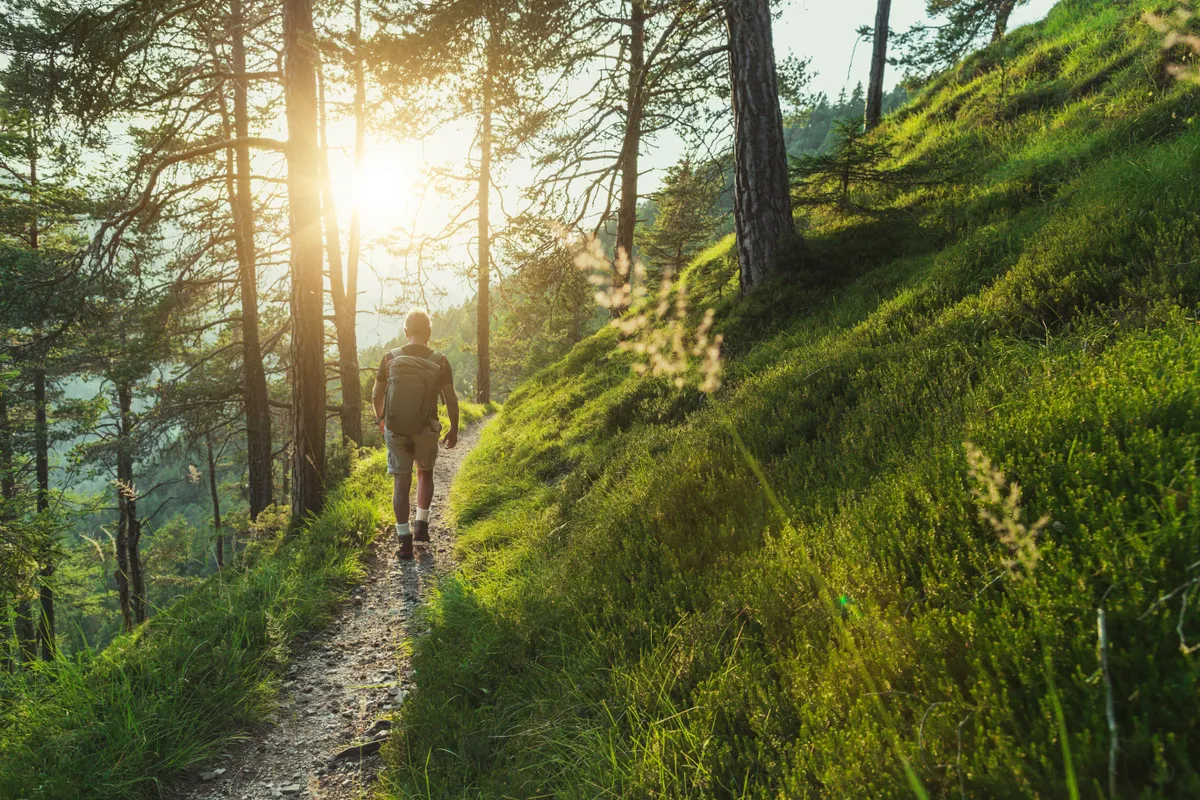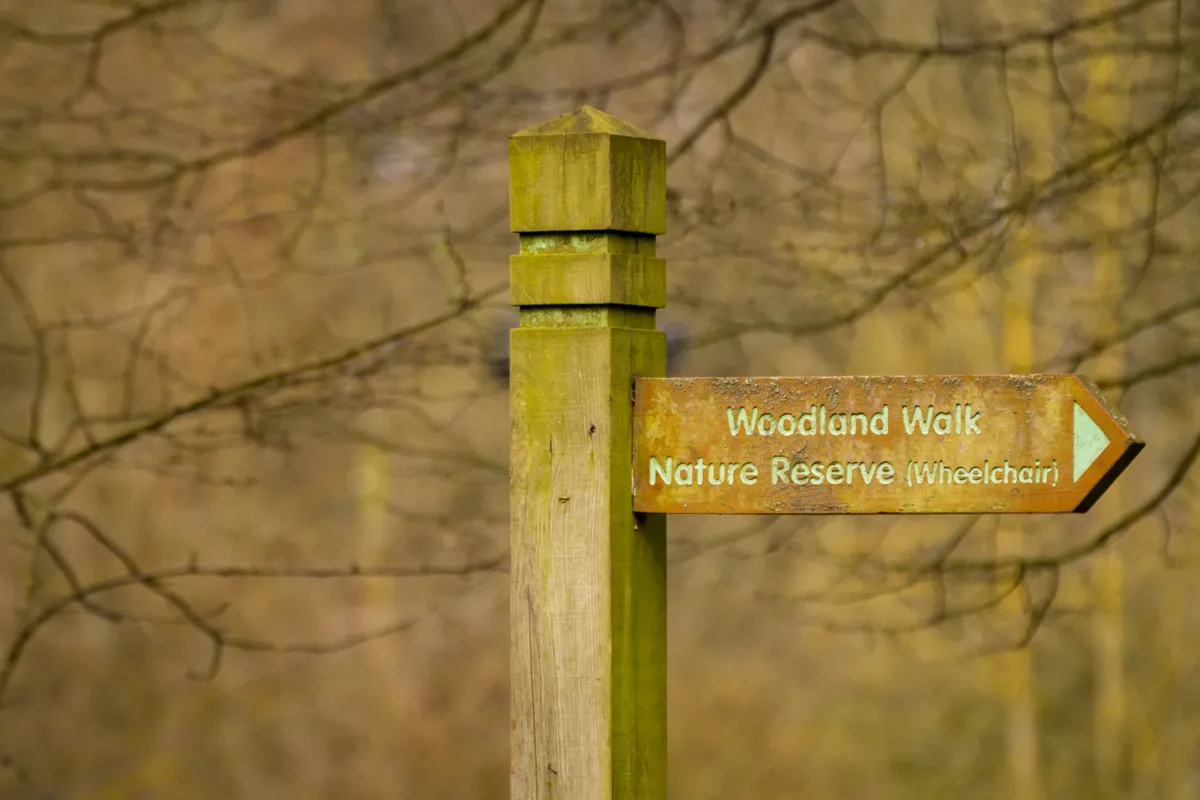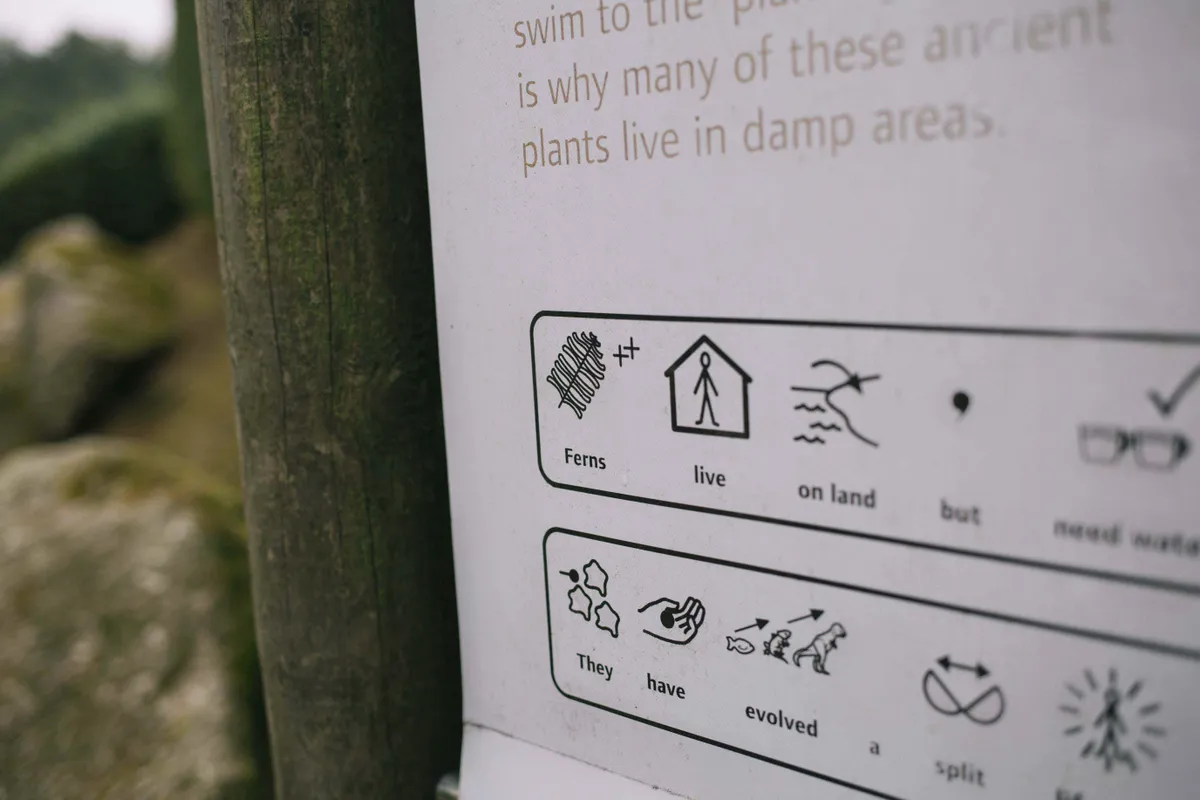Nine years ago, I reignited my childhood passion for nature. I started spending time at local nature reserves in my home county of Shropshire, polishing my identification skills, taking photographs and meeting other wildlife enthusiasts.
However, I always felt I was missing out when specialist activities, such as mammal workshops, were hosted at reserves that were futher afield, because I couldn’t get to them. I have mild cerebral palsy, dyspraxia and epilepsy, so I don’t drive.
It got me thinking about how people with disabilities – whether physical or learning – just don’t have the same access to the countryside.
Fight for access
I’ve spent the past five years speaking out about the issue through my campaign, All for Nature & Nature for All, and working with local charities on how to improve access both to green spaces and to conservation.
I have had many interesting discussions about accessibility, but there has always been a common thread. The conversation will start by considering access for those with physical disabilities; learning disabilities are rarely mentioned.
In 2011, research by Defra and the Environment Agency showed that people with learning disabilities are in the minority of visitors to the countryside. In 2016, Mencap revealed that one in three adults between the ages of 18-35 with a learning disability spends less than one hour a day outside.
Given what we now know about the benefits of time spent in nature, these statistics are shocking. And even more so when you consider that, according to mental health charity Mind, people with a learning disability are more likely to experience mental health problems than the rest of the general population.
Lockdown and learning disabilities
This inequality has been further highlighted as a result of Covid-19. While some people were easily able to access and explore the countryside during months of lockdown, others – many of whom may have had additional needs – were not, meaning they were far less equipped to deal with the mental burden of the pandemic.
Fair and equal access to public open spaces is governed by law, as stated in the Equality Act 2010. Therefore, ‘reasonable adjustment’ must be made for green spaces to become accessible for all learning-disabled people. Nature is not a luxury; it is a necessity and a basic human right. Anyone with a learning disability should have the chance to experience the wild.
Yet there are many factors as to why this currently isn’t the case. These include issues such as inaccessible facilities, financial constraints and transport problems – challenges that are heightened by the negatives attitudes those with learning disabilities can experience when accessing rural leisure activities. As if that wasn’t enough, at the moment no standard set of guidelines for universal access exists.

The daily lives of individuals with a learning disability are governed by their circumstances. “Learning disabled young adults are more likely to live in poorer neighbourhoods with poorer quality green spaces,” says Nadia Von Benzo, a social geographer from the University of Lancaster. People with a learning disability are also more likely to be unemployed and incur additional costs for specialist equipment and care, meaning there is often precious little to spend on leisure.
“Limited social support budgets mean that support staff are unable to take learning and physically disabled young people outside their homes,” says Nadia. “Where disabled young people live in supported accommodation, budgets are so tight that there are often few staff available for trips out. If they still live at home, lack of support to parents means that time when they might take the young person out and do ‘fun, family things’ is spent running the household and caring.”
How can nature reserves be more accessible?
A great deal of work has been carried out in nature reserves and green spaces to make them more accessible to those with physical disabilities. Boardwalks and suitable paving have been laid, and cafes, hides and toilet facilities adapted – sometimes in the face of opposition from people who believe that such modifications will ruin the aesthetic of the landscape or have a negative impact on conservation. But little has been done to cater for those with learning disabilities.

Jane Stoneman, director of The Sensory Trust, a charity that promotes inclusive nature experiences, is an authority on inclusive design. “Access guidance tends to focus on designing for physical disability, particularly wheelchair use, and neglects those aspects that can increase accessibility for people with a learning disability,” she says. “Standards tend to focus on technical criteria, such as path widths and surfaces, and less on factors such as the ‘legibility’ of a space – which enables people to find their way around and understand what is on offer.”
In green spaces, the concept of learning disabilities is still misunderstood. This isn’t helped by a general lack of knowledge surrounding learning disabilities. In 2013, a study by University College London revealed that only one third of people were able to recognise a learning disability. On top of this, there is confusion between the definitions of learning disability and learning difficulty.
The broad definition of a learning disability, such as Down’s syndrome, is that it affects intellectual ability and the capacity to carry out everyday activities – household tasks, socialising, managing money – and can affect someone for life. A learning difficulty, such as dyslexia, only affects how a person processes information – often manifesting in problems with literacy. It has no bearing on IQ. (Despite the definition of learning disability, we should never make assumptions. Like everyone else, individuals with learning disabilities are unique personalities. The term ‘learning disability’ covers a broad spectrum.)

A passion for nature
It would, of course, be wrong to assume that all people with a learning disability experience negative attitudes in the countryside. Oliver Hellowell, a 25-year-old wildlife and landscape photographer based in Somerset, has Down’s syndrome. He has had a passion for nature from an early age and has always been welcomed at his local reserves, with, according to his mother Wendy, staff “going out of their way to give him access and allow him to do what he wants to do.”
Oliver’s experience in nature has been extremely beneficial, not only for his health and wellbeing, but as a way to nurture his talent: he is the first person with Down’s syndrome to have published a photography book and hopes to turn professional. He also won the National Diversity Award for UK Positive Role Model for Disability in 2015.
Oliver is fortunate to have had a lot of encouragement, yet for him to pursue his passion and potential career, he has needed additional support. “To take him exploring in the countryside, two people have always been a necessity,” says Wendy. “His hyperactivity, his tendency to run off, and his lack of understanding of the concepts of danger and being lost made him quite a handful to manage.”
Making people welcome
Out-of-the-box thinking is needed when it comes to designing nature reserves to make them more accessible, or when developing wildlife activities for people with learning disabilities. It’s not about ramps or toilets – it’s about making people feel welcome. There are plenty of solutions, many of which are far less intrusive than physical access measures.
Accessible signage, both tactile and written in Makaton (sign language), can make a site much easier to navigate, at a tiny cost and with minimum intrusion. These sorts of simple ideas can help young families, people with profound multiple learning difficulties, and individuals with conditions such as dementia to engage and interact with nature.
The Sensory Trust has proved that this can be done – and with great success – through their work at The Eden Project, Cornwall. “We wanted to make Eden a place where people with a learning disability would feel welcome,” explains Jane. “We spent time with people with learning disabilities, and they talked to us about the importance of symbol languages. So, we integrated Widgit into the interpretation throughout the site and made it part of the overall experience – and we’ve had a great response. Families have loved seeing the symbols. The poignant thing they said was ‘it meant that you expected us to be there’.”

Other simple ideas are making a huge difference. Many people with learning disabilities can’t drive, for instance, with access to wilder sites limited by lack of public transport. Life Cycle UK, a Bristol-based charity that promotes cycling, has created an initiative known as Two’s Company, which provides tandem rides for anyone not confident enough on a bicycle to get out and about in nature.
“We offer anyone who is visually impaired or disabled the chance to experience the joys and freedoms of cycling,” says inclusive cycling manager Viv Maginnis. “We enjoy riding out of the city to enjoy the sounds and smells of the countryside.”
This fantastic initiative in turn is opening up even more roads to nature engagement – quite literally. Bat-detecting tandem rides, for example, have taken place in and around local woodlands. Forest school leader Rachel Tomlinson, who runs sessions for adults with learning disabilities, has accompanied these rides. “People say that being in nature helps them to feel more connected to the wider world,” she says. “There certainly seems a relaxed and calm atmosphere within our groups when we are outdoors.”
Technology is another solution, and we need to embrace and invest in new equipment. At my local reserve, after my recommendation, Shropshire Wildlife Trust are trialling supplying headsets with audio recordings to help those with both physical and learning disabilities to appreciate and immerse themselves in their surroundings.
David Attenborough’s documentaries may inspire us all to get out and explore more of the wild world, but for many learning-disabled people, the armchair is as close to the natural world as they will get. And given the wildlife declines currently sweeping Britain, surely we should enable people of all abilities to be involved with nature and its preservation? Nature doesn’t discriminate; neither should we.
Main image © Chu-Chieh Lee © Folio Art